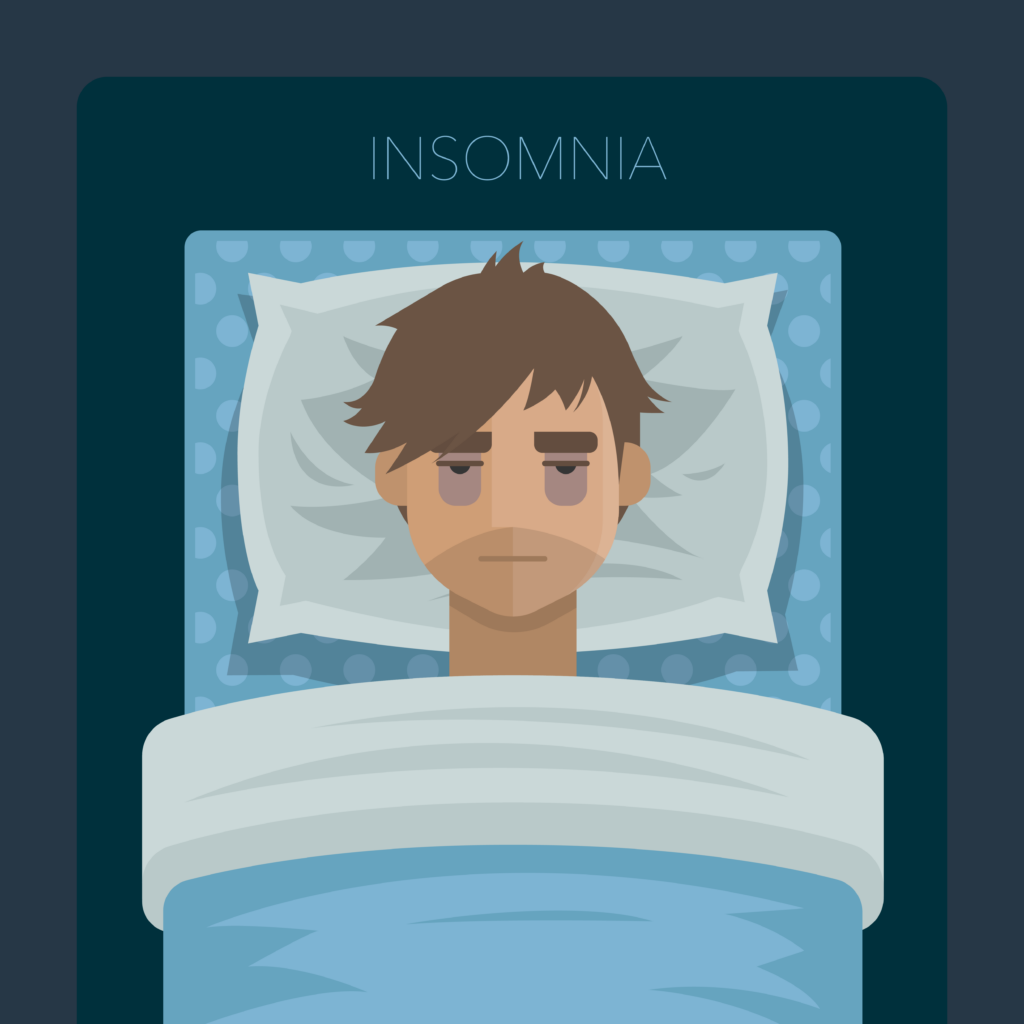
What is insomnia?
Insomnia, or disruptions in our sleep cycle and quality, is a common experience for many. It is estimated that about a third of all people will experience insomnia in some form during their lifetime. Insomnia can be either acute (short-term) or chronic (long-term) in nature and can be categorized as primary insomnia (not caused by another psychological or medical condition) or secondary insomnia (caused by a medical condition, mental health condition like depression, anxiety, or a substance use disorder). Insomnia can also be understood as difficulty falling asleep and/or staying asleep. There are four stages of sleep that occur in a certain order, stages 1-3 and REM sleep. Sometimes, this cycle can be interrupted, and it results in poor sleep quality. Our need for sleep fluctuates throughout our lives, often dependent on our age and medical needs; young children and infants can require up to 14-17 hours of sleep per day, and adults 18 and up may need between 7-9 hours of sleep per day. It is a common belief that all people must have 8 hours of sleep per day to be well-rested, but that is not true for all, and that may become a pattern of anxious thinking that contributes to the symptoms of insomnia
How do I know if I am experiencing Insomnia?
The time we need to spend sleeping will vary throughout our lives. However, there are some questions we can use as a guide to determine if we are experiencing insomnia: Do I feel well rested when I wake up? Do I feel drowsy during the day, even though I was sleeping the night before? Do I have difficulty focusing and concentrating on tasks during the day? An important consideration is that the overall time you spend in bed trying to sleep is not necessarily going to mean you will get better quality sleep. Instead, we should think more about how much time we spend actually sleeping versus the amount of time we are in bed. The aim is to improve our sleep efficiency; for example, if you spend 10 hours in bed, but you only had 6 hours of time actually sleeping, it is not an efficient sleep pattern and does not contribute to better sleep quality. While there may be a number of causes why we are not satisfied with the quality of our sleep, a thorough evaluation is needed to better understand the root cause. Firstly, speak with your primary care physician to determine if there is a medical reason for poor quality sleep, such as sleep apnea or another medical condition. If it is determined that there is not an underlying medical condition causing your insomnia, you may benefit from cognitive behavioral therapy for insomnia, or CBT-I.
CBT-I
CBT-I is a regimented treatment protocol that requires about 6-8 weeks to complete. Not all people who are engaged in CBT-I will notice a significant improvement in their sleep quality, but many do. There are certain contraindications for CBT-I, meaning that it may not be appropriate for all people. For example, if you have undiagnosed or untreated sleep apnea, you most likely will not notice an improvement in your sleep. Or, if you have been diagnosed with a seizure disorder, bipolar disorder type I or II, or have a history of falls/limited mobility, this treatment protocol may need to be modified to meet your needs. Set up an appointment today to learn more about if this is the right treatment option for you.

